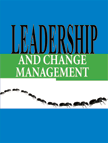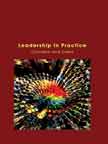Henry Ford - A Great Innovator




|
|
ICMR HOME | Case Studies Collection
Case Details:
Case Code : LDEN025
Case Length : 13 Pages
Period : 1903
Pub Date : 2003
Teaching Note :Not Available
Organization : Ford Motor Corporation Industry : Automobile
Countries : USA
To download Henry Ford - A Great Innovator case study
(Case Code: LDEN025) click on the button below, and select the case from the list of available cases:

Price:
For delivery in electronic format: Rs. 300;
For delivery through courier (within India): Rs. 300 + Rs. 25 for Shipping & Handling Charges
»
Leadership and Entrepreneurship Case Studies
» Case Studies Collection
» ICMR HOME
» Short Case Studies
» View Detailed Pricing Info
» How To Order This Case
» Business Case Studies
» Area Specific Case Studies
» Industry Wise Case Studies
» Company Wise Case Studies
Please note:
This case study was compiled from published sources, and is intended to be used as a basis for class discussion. It is not intended to illustrate either effective or ineffective handling of a management situation. Nor is it a primary information source.
|
|
<< Previous
Introduction Contd...
Ford had formulated a philosophy of three Ps -
People, Products and Profit - for his company. Explaining the
relationship between the three Ps, he said in 1916, "I don't believe
we should make such an awful profit on our cars. A reasonable profit
is right, but not too much. I hold that it is better to sell a large
number of cars at a reasonably small profit..... I hold this because
it enables a larger number of people to buy and enjoy the use of a
car and because it gives a larger number of men employment at good
wages. Those are the two aims I have in life."7
Background Note
Ford was born on July 30, 1863 during the US Civil War in a farmland at
Dearborn, near Detroit, Michigan. His mother passed away in March 1876. Later
the same year, Ford got a job at the Michigan Car Company, but was sacked six
days later for indicating a flaw in his foreman's work (Refer Exhibit I for
important events in Ford's life). As a boy, Ford developed his interest in
mechanics by taking watches apart to look at how they worked. He would take the
watch apart and then make it work again by joining the components together.
Describing Ford's nature, Brinkley said, "Like the automobile itself, Ford's
mind was never stationary.
|
|
He was antsy to the point of near insanity and always willing to roll the dice,
taking calculated risks and dreaming of a better tomorrow."8
While still a school boy, Ford developed a steam turbine engine with a high
number of revolutions per minute, which unfortunately burst and destroyed
the school walls.
|
|
Ford had a tool kit at home, which included a screwdriver, designed from a
knitting needle and a pair of pincers, shaped from a watch spring. He loved
to 'tinker' with things and was nicknamed the 'Grand Tinkerer.' Ford dropped
out of school at the age of 15. He had a strong aptitude for mechanics and
engineering. He was keenly interested in learning how different things
worked. Elucidating Ford's unique personality, James said, "Ford was a
gregarious, well-liked youth, but not overly studious. He was a hands-on
learner, always tinkering."9 In 1879,
when Ford was 16, he ran away from home. He went to Detroit where he worked
as a trainee in a machine shop called James Flower & Brothers (JF&B) to
learn how machines were made... |
Excerpts>>
|
|



